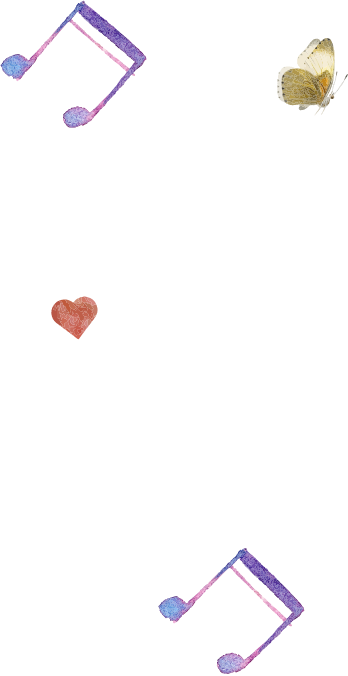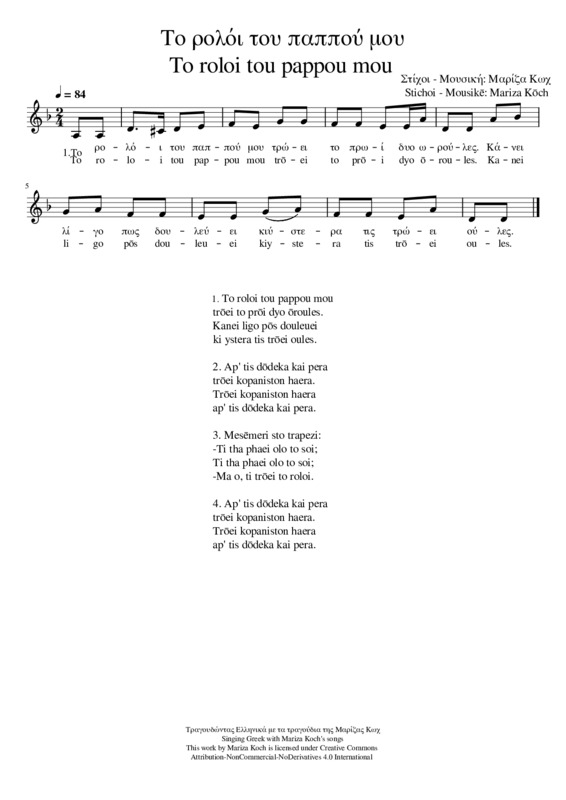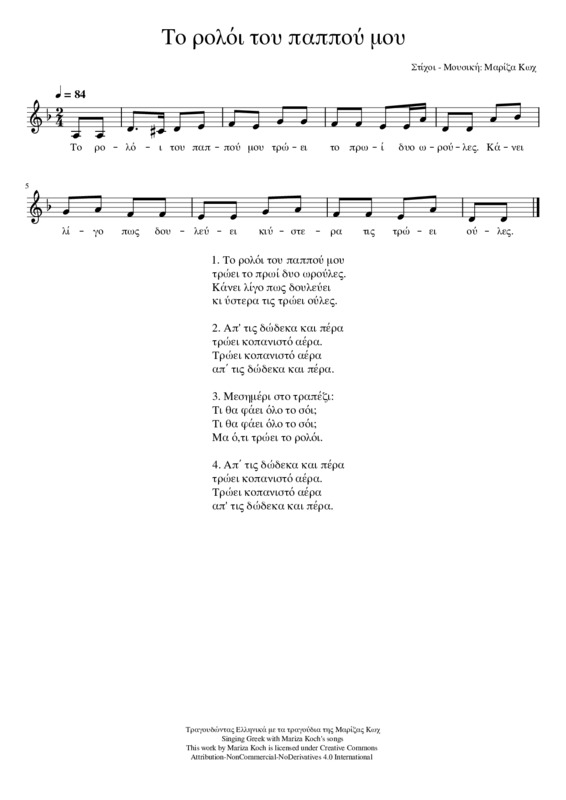
To roloi tou pappou mou

To roloi tou pappou mou
Pronunciation
Articulation of the phonemes /ο/ (/o/), /ω/ (/ō/) and /ου/ (/ou/). Practice their articulation with words of the song [ρολόι (roloi, watch), σόι (soi, clan), όλο (olo, all), ούλες (oules, all), ωρούλες (ōroules, hours), τρώει (trōei, it eats), αέρα (aera, air), ύστερα (ystera, then), πέρα (pera, beyond), μεσημέρι (mesēmeri, noon), τραπέζι (trapezi, table)]. Alliteration of /ρ/ (/r/): "τρώει το πρωί δυο ωρούλες" (trōei to prōi dyo ōroules).
Differentiation between /o/ and /ō/ during speech (o: short vowel, ō: long vowel) with examples. [i.e. in Ancient Greek the words ώρα (ōra, hour), ωραίο (ōraio, beautiful), Κλειώ (Kleiō) are recited with long ō, whether the words όμορφο (omorpho, beautiful), νόστιμο (nostimo, tasty), κοπανιστό (kopanisto), σόι (soi, clan) with short o].
Differentiation between /o/ and /ō/ during speech (o: short vowel, ō: long vowel) with examples. [i.e. in Ancient Greek the words ώρα (ōra, hour), ωραίο (ōraio, beautiful), Κλειώ (Kleiō) are recited with long ō, whether the words όμορφο (omorpho, beautiful), νόστιμο (nostimo, tasty), κοπανιστό (kopanisto), σόι (soi, clan) with short o].
Speech Comprehension and Production
Find the metaphorical expressions in the text of the song: το ρολόι τρώει δυο ωρούλες (to roloi trōei dyo ōroules, the clock stops for two hours) τρώει κοπανιστό αέρα (trōei kopanisto aera, it does nothing) το σόι θα φάει ό,τι τρώει το ρολόι (to soi tha phaei o,ti trōei to roloi, the clan will eat when the clock works)]. Practice the metaphorical and literal meanings of the phrases. Create metaphors.
Practice telling the time. Find the rhymes that are different in each verse i.e. in the 1st verse: ωρούλες-ούλες (ōroules-oules), in the 2nd verse: πέρα-αέρα (pera-aera), αέρα-πέρα (aera-pera).
Practice telling the time. Find the rhymes that are different in each verse i.e. in the 1st verse: ωρούλες-ούλες (ōroules-oules), in the 2nd verse: πέρα-αέρα (pera-aera), αέρα-πέρα (aera-pera).
Music Activities
The pupils move in space accompanied by the tambourine and they all mimic different types of clocks (i.e. wall clock: half notes, alarm clock: quarter notes, watch: eighth notes, bell: whole notes). They do so all together initially and then are divided into four groups with each group moving to different values. Sing with simultaneous rhythmic movement in space in different values (i.e. quarters, eighths, halves, sixteenths).
The pupils accompany the song with different rhythmic patterns of body percussion.
The pupils accompany the song with different rhythmic patterns of body percussion.
Cross-thematic Connections - Greek Culture
Interdisciplinary concept: time.
The concept of calculating time - search throughout times (hourglass, sundial, mechanical clock, digital clock etc.).
Time telling game: the children are on their feet and represent the hands of the clock with their hands. Following the commands of the leader, they are synchronized with the time. Those who do not make it stay still.
Family routines during the day in relation to time in Greek culture.
The concept of calculating time - search throughout times (hourglass, sundial, mechanical clock, digital clock etc.).
Time telling game: the children are on their feet and represent the hands of the clock with their hands. Following the commands of the leader, they are synchronized with the time. Those who do not make it stay still.
Family routines during the day in relation to time in Greek culture.
Age level
3-7 years old
Language level
Beginner
Ta chrōmatista tragoudia





